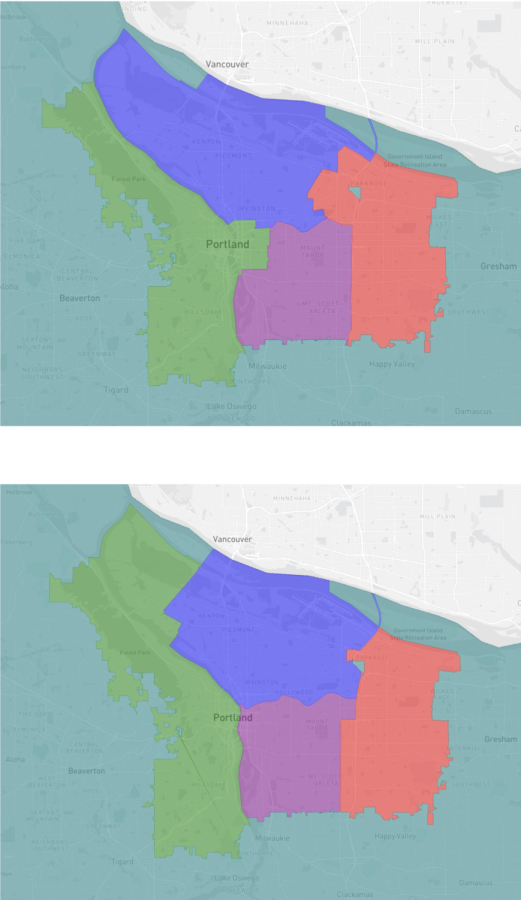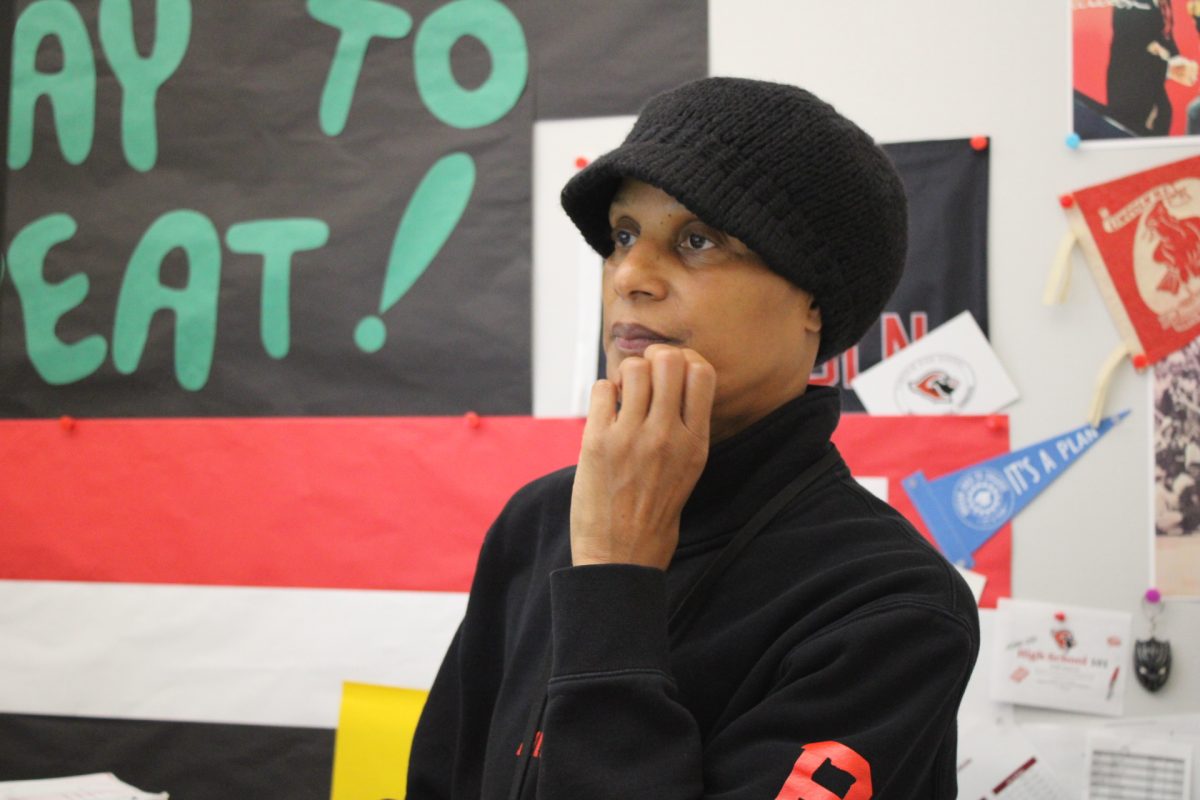Potential changes to Portland’s City Charter on the ballot this November
Courtesy of Portland Government
These potential voting districts would come into effect in the 2024 election.
November 29, 2022
Portland voters face a daunting decision this November. as a measure to change our city’s form of government and voting process is on the ballot. According to the Portland City Charter, every 10 years a 20 person commission must be appointed to propose changes to the city charter. If 15 members of the charter commission vote for a change, it is put on the ballot in November. After much deliberation and research from the charter commision, three big changes are to be voted on this year: switching to a ranked-choice voting system, splitting the city into four new City Council districts and changing Portland’s commission style of government.
The switch to ranked-choice voting is a movement not only present in local government, but worldwide. From Maine and Alaska to Australia and Ireland, ranked-choice voting has been proven to benefit democracy. A voter will rank their choices for who they want to win an election. Let’s say there are three candidates; you’ve voted for candidate A first, B second, and C third. If no candidate receives more than 50 percent of the first choice votes, the candidate with the least first choice votes is eliminated. If your first pick, A, has been removed from the race, under the current voting system, your vote would no longer matter. Under ranked choice voting, your vote now defaults to your second choice. This election system betters the democratic process by making sure that everyone gets a say in who their elected officials are, even if their preferred candidate doesn’t win.
In Portland, the implementation of ranked-choice voting would also do away with our primaries for city council and mayoral elections. Very few people vote in Oregon’s primaries, so to ensure the most amount of democratic engagement we would have one general election with every candidate.
Reworking the districts in Portland is advertised as creating more representation for Portland in city council. Currently, we have four city council members that can live anywhere in Portland when elected. This has been the case for over 100 years. Rank choice would split the city into four geographical regions, each region would have three representatives from their district. Making the total number of city counselors to 12. One of the most notable issues with the current system is that generally the four city council members are from affluent neighborhoods, and don’t represent the whole of Portland.
“I have some reservations on dividing the city up into four quadrants,” says history teacher Rion Roberts. “It could be good, but I feel it would pit different groups against each other.”
The most important proposed change is to move away from Portland’s current commission form of government. Under the commission style of government, we have a city council made up of five people: the mayor and four commissioners. Together, these people make laws and policies to govern our city as well as day to day operations. Portland is the only major city in the United States that still uses this style of government. If voters vote to change this system, the mayor and a city administrator would oversee the day-to-day operations, and the city council would be making policies and laws. This delegation of power is argued to make Portland run more smoothly.
It could be argued that this system is anti-democratic, however. In an interview with the Cardinal Times, Roberts also expressed concern for this aspect of the charter reforms. He says that appointing a city commissioner gives too much power over the day to day life of citizens to someone who wouldn’t be democratically elected.
If passed, these changes would affect Portland’s 2024 city council and mayoral elections. Now we wait to see what the people of Portland say to these amendments to the city charter.





